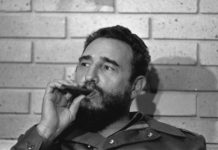Fergus Whelan. Review by Donal Fallon.
This study centres on one of the most remarkable UnitedIrishmen, but a man whose name has faded into relative obscurity by comparison with those of Theobald Wolfe Tone, Robert Emmet or Lord Edward Fitzgerald. While such figures secured their place in the pantheon of Irish radicals through participation in the events of 1798 and 1803, Archibald Hamilton Rowan spent those most dramatic years in exile.
As with many of his contemporary radicals, he was born into a highly privileged Protestant background. After studying in Cambridge University, Rowan travelled extensively visiting Holland, South Carolina and Portugal, before arriving in France as a twentytwo-year-old in 1773 and remaining there for eleven years. His time in France was dramatic both politically and personally, and he would meet Benjamin Franklin on a number of occasions.
He married in Paris, taking the hand of Sarah Dawson, a woman from Lisanisk near Carickmacross described as “strong minded, persistent and loyal”, she would remain a constant comrade in his life. Back in Dublin his position in life would have afforded him the ability to mingle within the elite circles of the city, but he instead emerges as a champion of the poor.
He came to prominence championing Mary Neal, a working class child of only twelve years who was raped in April 1788. Infuriated by a cover-up that sought to protect the powerful at the expense of a child, Rowan published a pamphlet that detailed a campaign of lies unleashed against her working class family. He was later presented with an address from the goldsmiths of the city, praising his efforts on behalf of “indigent and oppressed innocence”.
It may surprise some readers that figures central to the pantheon of Irish separatism often found political inspiration in Oliver Cromwell and William III
The Unitarian congregation which met in the Great Strand Street Meeting House emerges as a centre not only of faith but of radicalism. It may surprise some readers that figures central to the pantheon of Irish separatism often found political inspiration in Oliver Cromwell and William III.
Like many of his contemporaries, Rowan was greatly moved by the events of the French Revolution. While founded as a reformist movement, the Society of United Irishmen drifted towards radicalism and ultimately, following its suppression, separatism. There is a sense provided of the internationalism of the movement: not alone were the United Irishmen influenced by global events, they maintained global contacts. They sought to “make all Irishmen Citizens and all Citizens Irishmen”, though the very openness of the movement would in some ways prove its demise. Heavily infiltrated from the beginning, the authorities knew as much about it as many within its ranks.
Rowan was imprisoned by the authorities for seditious libel. When John Philpot Curran defended him in the courts, he felt confident in proclaiming that “there is not a man in this nation more known than [Rowan for his] extraordinary sympathy for human affliction”.
His politics forcing him aboard, Rowanwould spend the most remarkable years of the United Irish story in exile. He was imprisoned for a period as a British spy upon arrival in France, before embarrassed authorities released the Irish radical realising he was not a foe but a friend of France. He would mingle with Mary Wollstonecraft in Paris and even meet Robespierre, who questioned him on conditions in Ireland. As the French Revolution devoured itself, he witnessed the ruthless effectiveness of the guillotine at close quarters. Rowan ultimately left France for Philadelphia.
Rowan had been fearful of an abortive insurrection in Ireland, but he maintained a great personal loyalty to friends who fell in the 1798 Rebellion, later publicly defending the characters of men such as Samuel Neilson. The rebellion set in motion a series of events that culminated in the Act of Union, which, at least publically, Rowan welcomed stating that the Irish Parliament was “one of the most corrupt assemblies that ever existed”.
As with Fergus Whelan’s last work, Dissent Into Treason, the book raises sometimes uncomfortable questions for both the contemporary republican and unionist political movements. To some unionists, Protestant and dissenting voices like Rowan’s are mere “eccentric and dangerous egotists and traitors”, while republicans may ignore the fact that for men like Rowan the principles of Unitarianism may have been as influential as the gospel of Thomas Paine.
A longer review of the book by Donal Fallon can be read at www.drb.ie.





